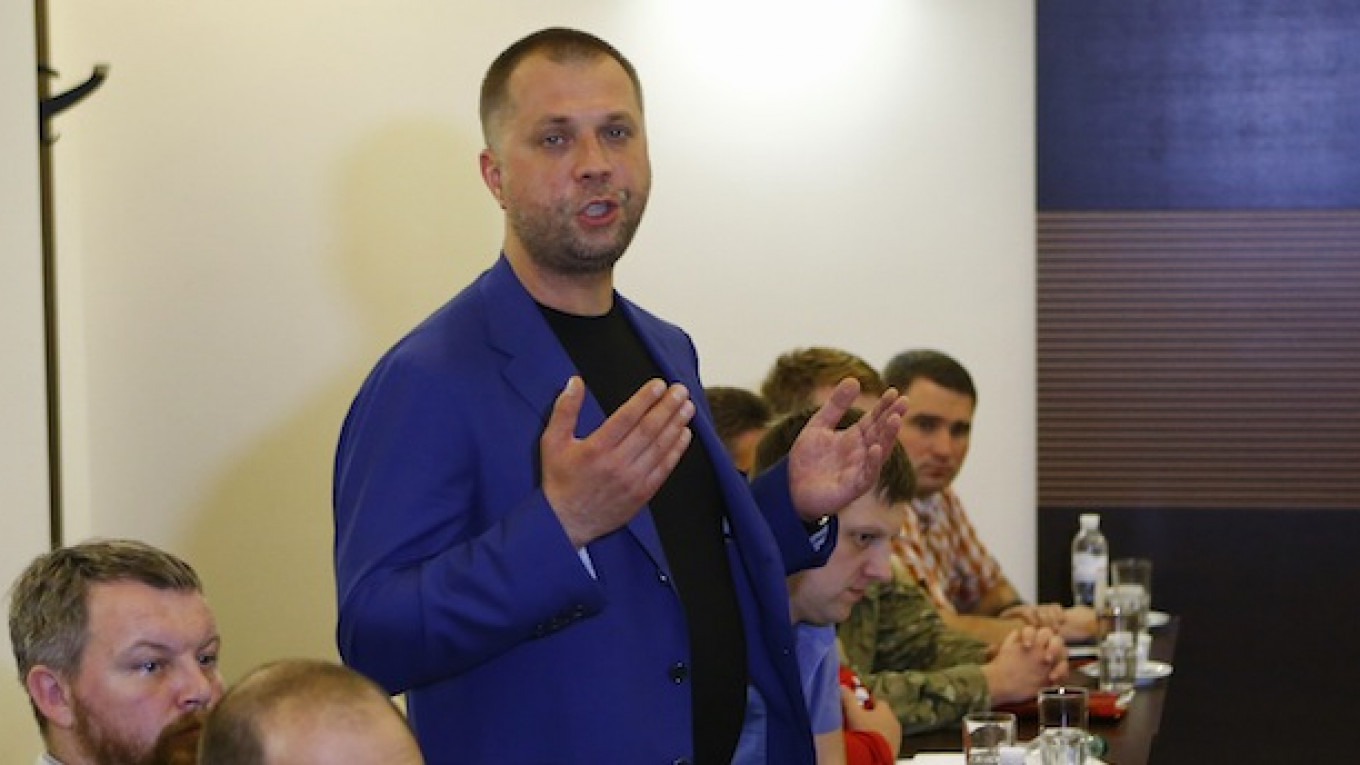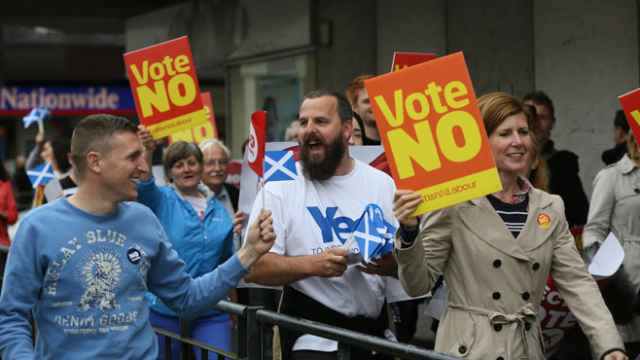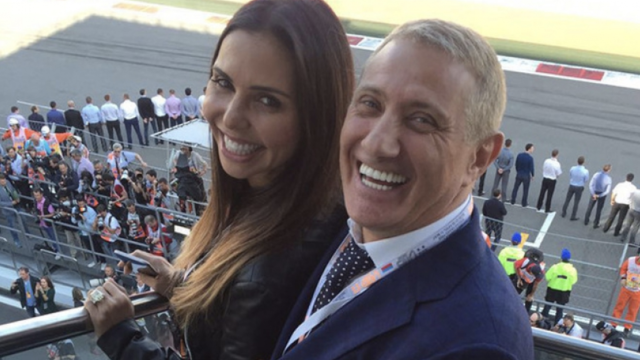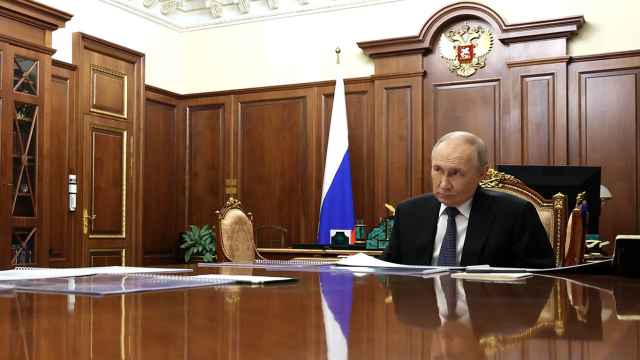Upon his return to Russia earlier this year, 22-year-old Chechen native Said Mazhayev was greeted by law enforcement authorities and quickly detained for fighting alongside the rebels in Syria.
Now he faces up to 10 years in prison.
Alexander Borodai, Igor Strelkov and countless other Russians who have openly taken part in — and even led — fierce fighting against government troops in Ukraine, on the other hand, have been greeted with pats on the back and a hero's welcome upon their return.
It's hard not to wonder what the difference is. Both groups of men claim to be fighting for ideological reasons, to topple or counter a tyrannical or unjust government waging war against its own people. Both groups also claim to have brotherly ties to the foreign nation in which they are fighting: Russians to Ukrainians in the Donbass; and Muslims to fellow Muslims — and maybe even family — in Syria (some people from Russia's republic of Dagestan have Syrian roots and relatives).
The two groups differ only in that the fight of one is detrimental to Russia's own political interests, whereas the other is advantageous.
By not prosecuting the "volunteers" who return from eastern Ukraine, Russia is not only shamelessly displaying double standards, it is also tacitly saying that fighting Kiev leader Petro Poroshenko's army is acceptable, while fighting Syrian leader Bashar Assad's is not.
Even the wording of the Criminal Code's Article 208 makes this clear: A mercenary is someone who "takes part [in fighting] in a foreign state alongside armed groups not recognized as legal by the given state's legislation, with aims counter to the interests of the Russian Federation."
Those 10 little words tacked onto the end of the law are relatively new. President Vladimir Putin signed legislation adding that tidbit at the end of last year, supposedly as part of a wider bid to toughen penalties for terrorism-related offenses.
Conveniently, the amendment shields Russian "volunteers" in Ukraine from criminal liability.
While Moscow has carefully tiptoed around expressing direct support for the rebels in eastern Ukraine, it has repeatedly presented them as men who were forced to take up arms in what the Foreign Ministry has called a "humanitarian catastrophe."
Even Chechen leader Ramzan Kadyrov has echoed that sentiment, praising volunteer fighters in Ukraine for their heroism while his own fellow Chechens get locked up for the same deeds on Syrian soil.
Mazhayev joins several other men from the North Caucasus who face prison time for participating in the Syrian conflict: fellow Chechens Rustam Kerimov and Shakhid Temirbulatov, and Dagestani Shamil Nurmagomedov. It is likely that there are others.
Federal Security Service director Alexander Bortnikov estimated last year that several hundred Russians were fighting in Syria.
But that's only a conservative estimate: A report by the London-based publication Al-Quds Al-Arabi says one battalion alone has more than 1,000 Chechen fighters, headed by Abu Abdurakhman. Natives of Russia's Ingushetia and Dagestan republics have also been reported to be fighting in various factions in Syria, as well as fighters from former Soviet states Azerbaijan and Tajikistan.
And in stark contrast to the authorities' failure to bat an eyelid at the return of Russian "volunteer" fighters from Ukraine, authorities have expressed alarm about the prospect of fighters returning from Syria.
Their concerns are surely warranted, especially in light of the rapid rise of the Islamic State, but public opinion is just as big a factor in their decision to vilify one group and praise the other.
A Muslim man returning from Syria risks being seen as a terrorist by the general public by default. He is simply beyond the wider public's understanding, which makes it that much easier for authorities to make an example out of him.
Mazhayev was an easy one. He came back of his own accord, after becoming disillusioned with the Syrian rebels and realizing his own mistake. He appeared on a local television program and urged other young men not to follow in his footsteps.
He spent less than three months in the conflict, alongside the Free Syrian Army. His family members say he returned not as a radicalized lunatic bent on waging jihad, but as a confused young man traumatized by what he had seen and done.
Nonetheless, he will likely get a harsh prison sentence, despite his relatives' hopes for leniency.
The authorities have to deter other young men in the North Caucasus from joining the fight in Syria, both to uphold the government's official agenda and protect against the spread of jihadist ideology on Russian soil.
Volunteer fighters from the Ukraine conflict don't have to fear prosecution: They know perfectly well that they are immune.
They aren't trying to oust any of the Kremlin's bedfellows, their fight is supported by most of the Russian public, and most importantly, the government does not want to deter them.
A Message from The Moscow Times:
Dear readers,
We are facing unprecedented challenges. Russia's Prosecutor General's Office has designated The Moscow Times as an "undesirable" organization, criminalizing our work and putting our staff at risk of prosecution. This follows our earlier unjust labeling as a "foreign agent."
These actions are direct attempts to silence independent journalism in Russia. The authorities claim our work "discredits the decisions of the Russian leadership." We see things differently: we strive to provide accurate, unbiased reporting on Russia.
We, the journalists of The Moscow Times, refuse to be silenced. But to continue our work, we need your help.
Your support, no matter how small, makes a world of difference. If you can, please support us monthly starting from just $2. It's quick to set up, and every contribution makes a significant impact.
By supporting The Moscow Times, you're defending open, independent journalism in the face of repression. Thank you for standing with us.
Remind me later.






